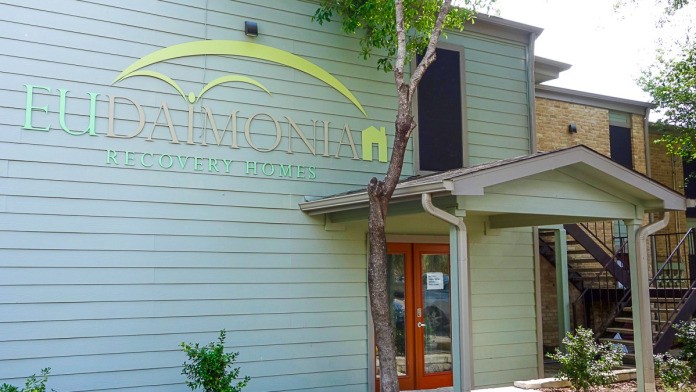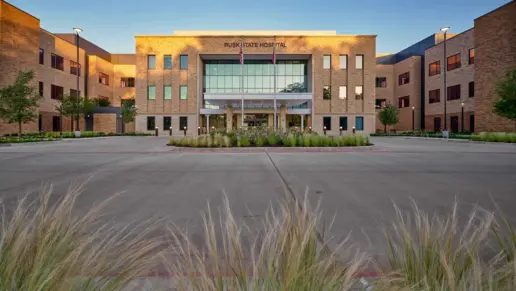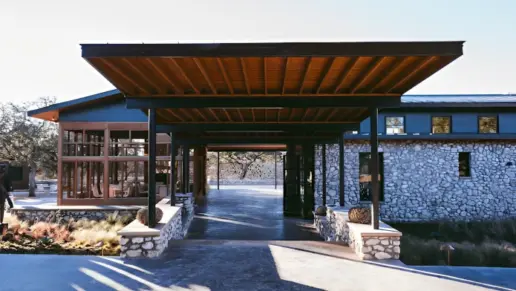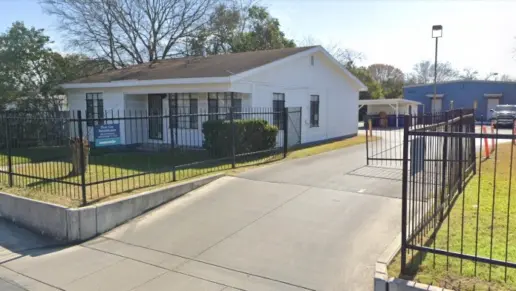My son ended up here after North Austin Recovery decided that he could no longer stay with them. The real problem was mental health which wasn't addressed. This was two years ago. He ended up in his own apartment but needed the structure of living with others. One night he e ...
About Eudaimonia recovery homes
Eudaimonia Recovery Homes is focused on providing an accountable environment where adults in Austin, Texas can get the support they need to focus on their addiction recovery. The center knows how challenging it is to overcome substance abuse issues, which is why they offer recovery homes that cater to differing needs.
The center is known for being inclusive. If this is important to you then you may like the fact that they offer treatment to men, women and LGBTQIA+ individuals from all walks of life. No matter who you are you’ll likely find the help you need at this center if you’re ready to lead a sober lifestyle.
To help you achieve this lifestyle you can participate in any of the sober living arrangements that allow you to gain valuable life skills while learning how to navigate real-life responsibilities. When you live at one of the Eudaimonia recovery homes – which are gender and LGBTQIA+ specific – you’ll be responsible for paying a fair monthly fee. You will also need to participate in a unique custom-tailored three-phase recovery program.
You can also rest easy knowing that staff are on-site 24/7 if you ever need assistance or are facing a crisis during your journey to sobriety. The recovery homes are affordable and near amenities and facilities that can help your long-term recovery. The homes also include everything you could need during your stay for as long as required. For example, cable, Wi-Fi, a media center, a private pool, a fitness center, a community center and fully furnished rooms are available.
Many have also loved that the Austin, Texas recovery home offers a distraction-free space with clinical support. You can practice what you have learned in rehab and receive individual therapy to continue overcoming personal issues that could impact addiction recovery and personal growth.
You’ll need to speak with the facility to learn more about the recovery homes and whether rooms are available.
Rehab Score
Gallery

Location
Other Forms of Payment
Private insurance refers to any kind of healthcare coverage that isn't from the state or federal government. This includes individual and family plans offered by an employer or purchased from the Insurance Marketplace. Every plan will have different requirements and out of pocket costs so be sure to get the full details before you start treatment.
Self-pay involves paying for treatment out of your own pocket. You can use savings or credit, get a personal loan, or receive help from family and friends to fund your treatment. If you don't have insurance or your insurance plan doesn't cover a specific program, self-pay can help ensure you still get the care you need.
Addiction Treatments
Levels of Care
Treatments
A combined mental health and substance abuse rehab has the staff and resources available to handle individuals with both mental health and substance abuse issues. It can be challenging to determine where a specific symptom stems from (a mental health issue or an issue related to substance abuse), so mental health and substance abuse professionals are helpful in detangling symptoms and keeping treatment on track.
Programs

Clinical Services
The goal of cognitive behavioral therapy (CBT) in Texas is to change thought patterns, which leads to changes in behavior. Specific techniques during CBT can include self talk, SMART goals, journaling, and positive activities.
Treatment that takes a dialectical behavior therapy approach focuses on four strategies. Distress tolerance will help you accept and tolerate intense emotions. Emotional regulation will teach you to manage those emotions. Mindfulness will keep you in the present moment instead of regret or worry. Interpersonal effectiveness will teach you to manage your relationships.
Peer support is an important aspect of group therapy sessions for drug and alcohol addiction. As you and your peers share stories and encourage each other, it fosters a sense of community and belonging that helps you process your feelings and reduces the sense of isolation that is associated with addiction.
Individual therapy offers you a confidential space to address the complexities of your drug or alcohol addiction. Your therapist guides these personalized sessions to help develop self awareness and manage stress. This promotes sustained sobriety and overall well being.
Therapy sessions that incorporate motivational interviewing focus on OARS: open questions, affirmation, reflections, and summarizing. This facilitates an exchange of information and an empowering of the client to decide for themselves what changes might need to be made in their lives.
Together with an experienced trauma therapist, you work on healing emotional wounds from traumatic experiences within a trauma therapy environment. Your therapist will help you process the experience of the trauma, which promotes emotional healing and improves your overall mental health.
Couples therapy helps couples learn to control emotions, trust each other, and communicate more effectively. It can be useful for short term intervention for a specific issue or for working on the relationship long term.
The purpose of family therapy is to create a supportive and understanding family dynamic within the family unit. Therapists help individual members to identify and change harmful behavior patterns and improve communication. This provides a stable foundation for the family and their loved one's recovery.
Life skills trainings involve all the skills a person must have in order to function successfully in the world. These include time management, career guidance, money management, and effective communication. Truly successful addiction recovery is based on the ability to not only live substance-free, but to thrive. Life skills teaches the practical necessities of functioning in society, which sets clients up for success in life, and therefore sobriety.
What you eat has a significant effect on your mental and physical health. That's why many addiction recovery programs in Texas incorporate nutrition therapy in their treatment. This therapy teaches you how addiction affects nutrition, what foods are best to eat during recovery, and how to shop for and prepare healthy meals.
Creative arts therapy focuses on creative processes. You may engage in sculpting, dancing, improv, painting, or sketching. These creative outlets provide an opportunity to explore and express difficult emotions.
When used as recommended, nicotine replacement therapy in Texas provides enough nicotine to help you avoid severe cravings and withdrawal symptoms after quitting smoking. This increases comfort so you're less likely to relapse into your smoking habit.
Amenities
-
Gym
-
Yoga Studio
-
Wifi
-
Residential Setting
-
Private Rooms
-
Mountain Views
-
Gardens
-
Walking Trails
Contact Information
7211 Northeast Dr
Austin, TX 78723


